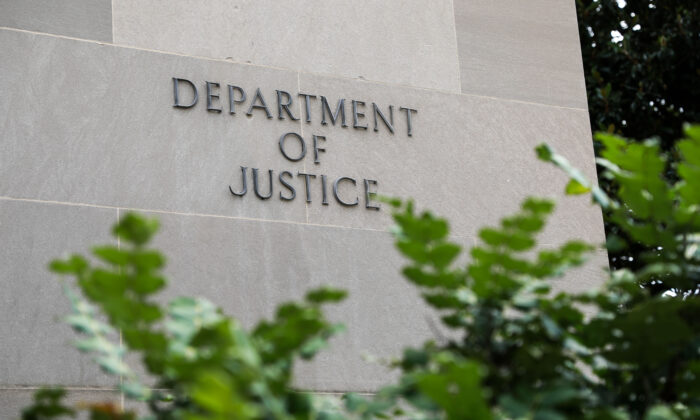EU Nations Can Restrict Vendors Under New 5G Guidelines, Huawei at Risk
The Justice Department (DOJ) has filed a brief in support of an Ohio law that prohibits abortionists from performing an abortion they know is sought because of Down syndrome.
Ohio passed the law, known as House Bill 214, in 2017 that states that an abortion provider cannot “purposely perform or induce or attempt to perform or induce an abortion on a pregnant woman if” the provider has knowledge that the woman seeking the abortion has sought the procedure because the unborn child has Down syndrome. The state says the law is entrenched in anti-discrimination principles and is trying to protect individuals with disabilities from prejudice.
The law also prevents against opening the floodgates for letting the medical profession participate in abortions on the basis of race, sex, genetic makeup, or other characteristics of the unborn child detected prenatally, the DOJ said. It also protects women from potentially coercive abortion providers who may pressure them in obtaining an abortion because of the genetic disorder.
Following the signing of the law, several reproductive health care providers sued the state on behalf of its patients, arguing that the law imposes an unconstitutional burden on women seeking abortion and that it would undermine the relationship between doctors and patients by making it harder for patients to have an honest conversation with their doctors.
They also argued that the mere fact that a woman is seeking an abortion after receiving a Down syndrome diagnosis cannot be used to construe that the abortionist has knowledge of her motivations.
At trial, the U.S. District Court for the Southern District of Ohio blocked the law from going into effect. It was scheduled to be enforced on March 23, 2018. A split three-judge panel on the U.S. Court of Appeals for the Sixth Circuit then affirmed the lower court’s ruling upon appeal. The full court of the Sixth Circuit has voted to re-hear the appeal.
On Tuesday, the DOJ filed a friend-of-the-court brief (pdf) arguing in support of the Ohio legislation. The department’s lawyers say the law does not prohibit abortions or create a “substantial obstacle” for women seeking the procedure but rather, it merely prevents abortionists from knowingly participating in abortions they know are sought because of Down syndrome.
“This is what the text of the law says, this is how the State of Ohio understands the statute, and this is the construction the canon of constitutional avoidance compels,” the department argued.
A woman’s ability to obtain an abortion is unfettered, even if she shares her motivation to an abortion provider, because the law does not prevent her from seeking the procedure from a second provider, the department said.
The department also argued that the benefits of the law should outweigh any of its burdens caused by its implementation. They said the law advances the state’s interest in protecting the integrity and ethics of the medical profession, draws a line to certain practices that ends life, and protects disabled people from prejudice, negative, and inaccurate stereotypes.
“A prohibition on abortion providers from knowingly performing abortions based on disability—like a prohibition on knowingly participating in assisted suicides—replaces ‘negative messages’ with a public statement that the lives of individuals with ‘disabil[ities] must be no less valued than the lives’ of others,” the department said.
Assistant Attorney General Eric Dreiband of the Civil Rights Division, who signed the brief, said that the department is participating in this case because the federal government has an interest in the “equal dignity of those who live with disabilities.”
“Nothing in the Constitution requires Ohio to authorize abortion providers to participate in abortions the providers know are based on Down syndrome,” he said in a statement.
Like the circuit courts, the Supreme Court will also hear a case on another state’s law putting limitations on abortions. That case asks the court to decide whether an unconstitutional burden has been placed on women seeking abortions after Louisiana passed a law requiring doctors performing abortions to have admitting privileges within 30 miles of where the procedure was taking place.
The Trump administration has expressly supported the lives of unborn children. On Tuesday, President Donald Trump signed a proclamation on National Sanctity of Human Life Day 2020 to reaffirm the administration’s commitment to protecting “the precious gift of life at every stage, from conception to natural death.”
Trump said in his proclamation that the number and rate of abortions have been declining in recent years across the nation, but more work needs to be done.
“I will continue to fight to protect the lives of the unborn,” he said. “As a Nation, we must remain steadfastly dedicated to the profound truth that all life is a gift from God, who endows every person with immeasurable worth and potential.”
This article is from the Internet:Justice Department Defends Ohio Law Banning Down Syndrome Abortions
Some Kenyans Say Chinese-Built Railway Leaves Them in the Dust
